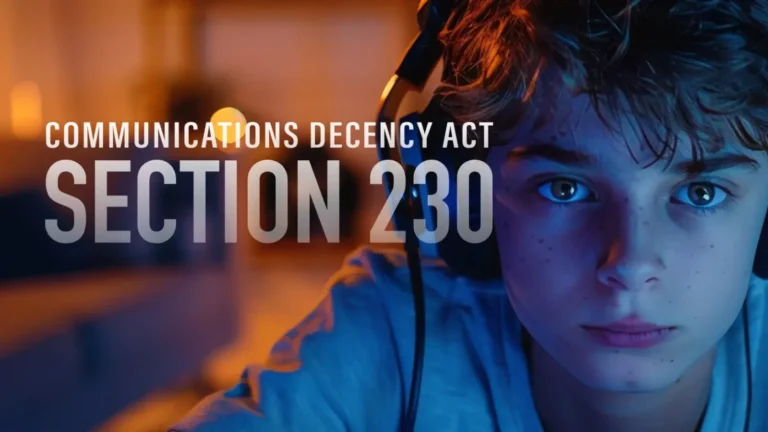From the Morality in Media Newsletter, November-December 1998
The Child On-line Protection Act (COPA), passed by Congress and signed into law by President Clinton in October, is the latest in a long line of victories for decency that Morality in Media has helped achieve.
The new law requires commercial Internet Web sites take steps to block access by anyone 16 or younger to materials on sites that are “harmful to minors.”
Representative Michael Oxley (R-Ohio), a principal sponsor of the new law, gave MIM an opportunity last spring to comment on an early draft of the bill. Most of MIM’s recommendations were adopted.
The new law compels commercial distributors of Web porn to remove free images and to require a credit card, personal identification number, or adult access code in order to view sexually explicit material. Web porn distributors often put free “teaser” images on their sites before requiring a credit card to see other images.
MIM believes that COPA, unlike the Communications Decency Act (CDA) of 1996 (which was struck down by the U.S. Supreme Court), can withstand a constitutional challenge in part because of the changes we suggested, including:
- adding a scienter (knowledge of criminal activity) requirement
- improving the definition of “engaged in the business” using language in Federal obscenity law
- improving the definition of “harmful to minors” using language from New York State law.
The new law also includes a proposal that MIM put forth after the Supreme Court invalidated the CDA in 1997. This proposal was that Congress establish a “Blue Ribbon Commission” to make recommendations on how to reduce minors’ access to Internet pornography. The COPA establishes such a commission.
“The new law will not solve the whole problem of minors accessing Internet porn,” says MIM President Bob Peters, “but it will accomplish at least one and, prayerfully, three purposes. First, it gives the Supreme Court a fresh opportunity to address the Internet porn problem, because the new law avoids the primary pitfalls that prompted the Court to invalidate the Communications Decency Act (“CDA”) last year. Second, if the new law is upheld, it will shield minors from one major source of Internet pornography. And third, if upheld, the new law will provide a basis for Congress to enact additional laws to shield minors from other sources of pornography on the Internet.”
The American Civil Liberties Union has filed suit in Federal court to stop enforcement of the Child Online Protection Act. MIM anticipates filing an amicus curiae (friend of the court) brief in the case, Peters said.
The Act passed in spite of heavy lobbying against it by Disney, the Motion Picture Association of America, America Online, and Microsoft. The Washington Times reported (Oct. 7) that Disney feared the bill would prevent it from marketing some of its movies on-line. “This amounts to a tacit admission by Disney that some of what the company markets could be considered pornography by this measure and harmful to minors,” said Tim Wildmon, vice president of the American Family Association, in a written statement. “By opposing this bill, Disney demonstrates that it is insincere when it says it cares about families and children,” Wildmon said.
Author: MIM



